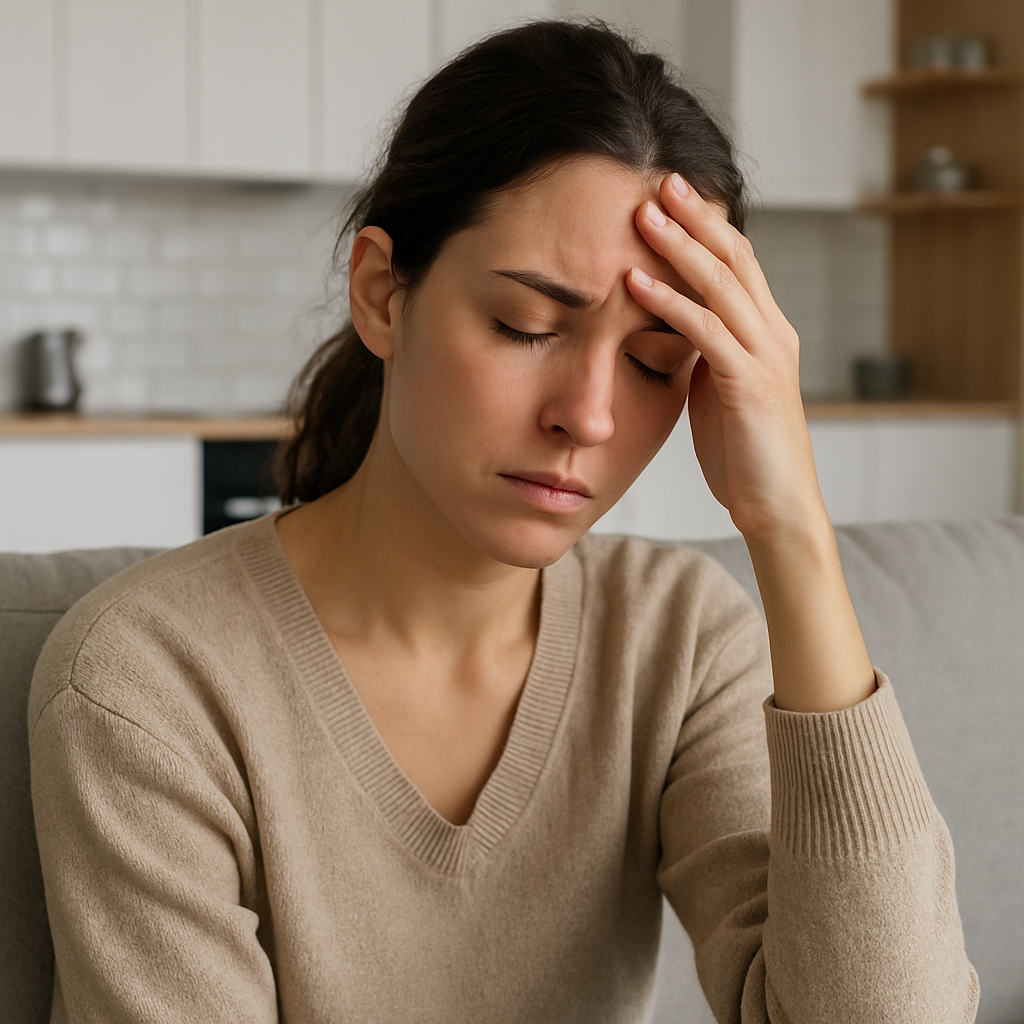We've all been there – you wake up after a night out and suddenly your brain decides to throw a full-blown anxiety party, complete with racing thoughts, existential dread, and the overwhelming urge to replay every conversation from the night before. Welcome to the wonderful world of "hangxiety," where hangovers and anxiety collide in the most unwelcome way possible.
What Exactly Is Hangxiety?
Hangxiety is exactly what it sounds like: the anxiety-inducing cousin of your traditional hangover. While regular hangover symptoms like headaches and nausea are bad enough, hangxiety adds a psychological twist that can leave you questioning your life choices (and wondering if you actually sent that text to your ex).
According to recent research highlighted in National Geographic, this phenomenon is so common it has earned its own hashtag (#hangxiety) and affects people regardless of whether they typically experience anxiety in their daily lives.
The Brain Chemistry Behind the Panic
Here's where things get scientifically fascinating (and slightly terrifying). When you drink, alcohol hijacks your brain's natural relaxation system by interfering with a neurotransmitter called gamma-aminobutyric acid (GABA). Think of GABA as your brain's built-in chill pill – it's responsible for keeping you calm, relaxed, and mentally balanced.
As Dr. David Nutt, a neuropsychopharmacologist at Imperial College London, explains in the National Geographic article, alcohol essentially tricks your brain by binding to the same receptors that GABA would normally use. This is why you feel more relaxed and social when drinking – your brain thinks it's getting extra GABA when it's actually getting alcohol.
But here's the plot twist: as alcohol does GABA's job, your brain gets lazy and starts producing less of its own natural calming chemicals. When the alcohol leaves your system, you're left with depleted GABA levels and potentially more anxiety than you started with.
The Glutamate Factor: Your Brain's Energy Drink
If GABA is your brain's chill pill, glutamate is its energy drink. This excitatory neurotransmitter is responsible for boosting activity and energy levels. When alcohol suppresses glutamate's effects, your brain compensates by creating more glutamate receptors.
Once the alcohol wears off, you're left with a surplus of these high-energy signals firing in your brain, creating what researchers describe as a "temporary high-energy, high-anxiety state." It's like your brain is stuck in overdrive with broken brakes.
The Secondary Culprits
The GABA-glutamate disruption is just the main event. Several other factors contribute to hangxiety's psychological torture:
The Acetaldehyde Problem: When your liver processes alcohol, it creates acetaldehyde – a toxic byproduct that's literally poisonous to your cells. As your body works to eliminate this toxin throughout the day, the physical stress can manifest as irritability and anxiety.
Sleep Disruption: While alcohol might help you fall asleep initially, it wreaks havoc on your sleep cycle, leaving you restless and poorly rested – a perfect recipe for next-day anxiety.
Blood Sugar Blues: Alcohol can cause blood sugar crashes, which stress your body and trigger anxiety responses.
Gut Reaction: Your intestinal microbiome doesn't appreciate alcohol's presence, and the gut-brain connection means this digestive distress can contribute to psychological discomfort.
Who's Most at Risk?
According to the research, hangxiety can strike anyone, but certain factors increase your vulnerability:
- People who already experience anxiety disorders
- Those who drink to cope with social anxiety
- Individuals with poor emotional regulation
- Regular or heavy drinkers (whose GABA systems are more severely disrupted)
The Bottom Line
Understanding hangxiety isn't just about satisfying scientific curiosity – it's about recognizing that those post-drinking anxiety spirals have a real, biological basis. Your brain isn't betraying you; it's literally trying to recalibrate its chemistry after you've temporarily hijacked its natural systems.
As the experts suggest in the National Geographic research, the most effective prevention remains limiting alcohol consumption to recommended levels (two drinks or less per day for men, one for women). And remember: using alcohol to combat hangxiety is a dangerous cycle that can lead to dependency.
The next time you're lying in bed at 2 AM wondering why you're suddenly convinced the world is ending, take comfort in knowing it's just your GABA and glutamate having a temporary disagreement. Your brain chemistry will reset – but maybe keep the ibuprofen and a good podcast handy while it does.
This article is based on scientific research and expert interviews featured in National Geographic. If you're experiencing persistent anxiety or think you might have issues with alcohol, please consult with a healthcare professional.

